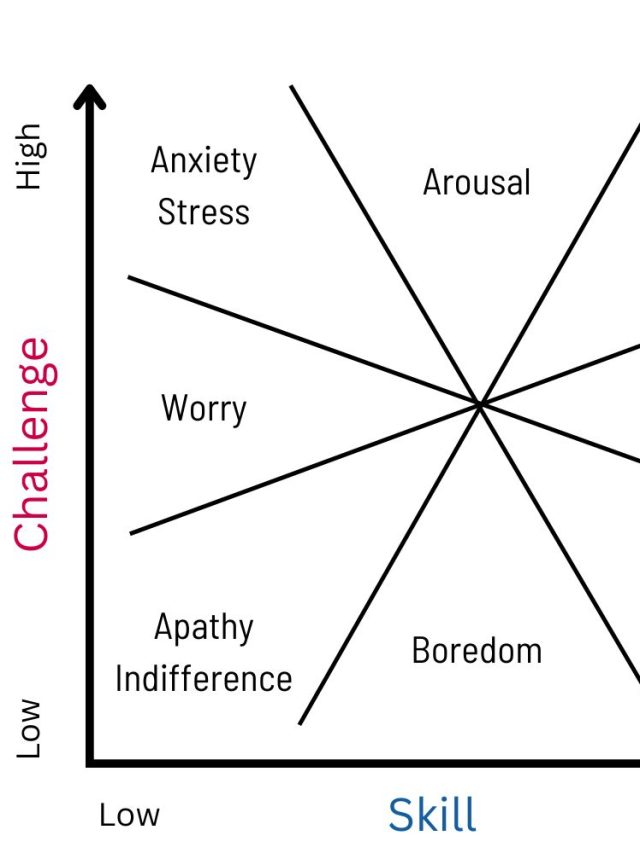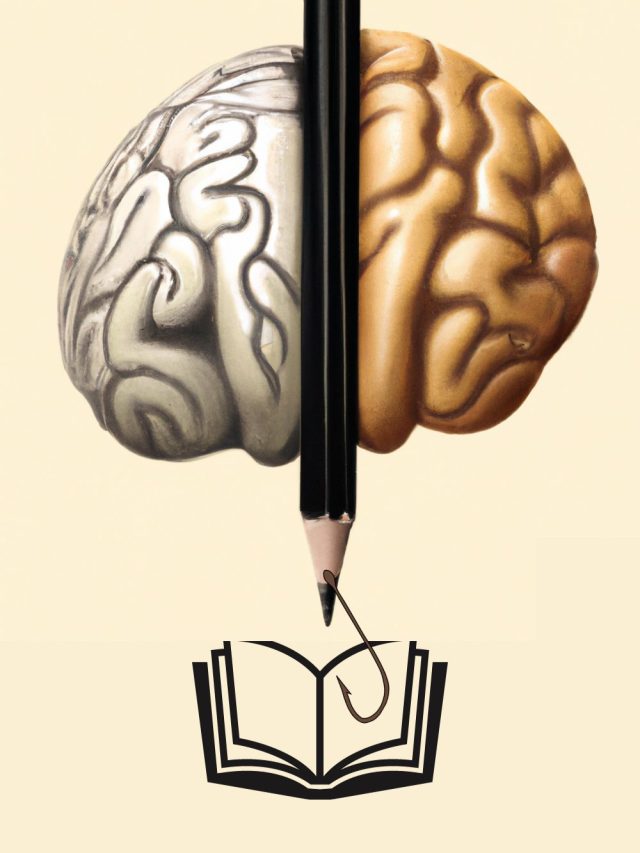There is no shortage of advice on how to study better. But, there is a shortage of holistic guides to help you improve the quality of studying. That’s why I’ve written this article with the explicit goal of showing you what to optimize for better learning and how to optimize it in any situation that demands studying – be it school, work, or lifelong education.
Let’s look at study optimizations in 2 layers.
Mental Optimizations to Improve Studying
The first step to improve memory or comprehension of new study material is to make sure that your mind and body are in a welcoming state. This depends a lot on your lifestyle and mental space. Mental optimizations for better results affect concentration, motivation, and your brain’s ability to manage learning new things.
- Concentration: Recognize how long you can concentrate and how long you are willing to focus. Whatever you are comfortable with, add 5% to it every day. Limit the time to 45 minutes at a time. Be ready to pay deliberate attention, not passively absorb what falls on your eyes. If music helps you concentrate, use it. If breaks every 20 mins help you, take them. You might want to check this exhaustive post on how to improve concentration too.
- Sleep: Sleep well every night; if your brain can’t optimize itself at night, no study technique will yield results. These techniques can help you sleep better.
- Bodily arousal: Exercise and keep your body’s arousal high. Feel active, not passive.
- Procrastination: Each activity you want to procrastinate needs to be tackled with curiosity and reliability. Find a way to connect things you don’t like to something you might use or do in the future. You know your life, so make it relatable and find curiosity in some way. Maybe ask a lot of questions for the smaller details to ensure you aren’t overwhelmed. Procrastination is caused by poor emotional regulation. It’ll be useful to look at a task with positive emotions like curiosity and relatability instead of negative emotions like fear of failure, fear of being judged, and low confidence in your ability to perform well.
- Commitment: Emotionally commit to your study material. Also, commit to the idea that you will do your best without paying much attention to any fear of failure or performance anxiety.
- Motivation: Find the intrinsic motivation to learn something. Don’t confuse your brain’s motivation by complicating things with reward systems, especially if you have that intrinsic motivation. But do track your progress and acknowledge your growth. The easiest way to find intrinsic motivation is to identify your psychological needs like the need for achievement, the need for economic stability, the need for recognition, etc., and figure out how studying can fulfill those needs. Example – if you don’t feel like studying, think about how you can use the knowledge you may gain to earn respect in society (i.e., fulfill the need for recognition).
- Discipline: People have different ways to feel in control. One way is to do things like making to-do lists, setting study goals, keeping neat notes, fixing your study location, using timers, etc. Not all would benefit from doing those. Some people prefer scribbled notes, waiting till the last minute to feel the pressure, ignore-lists, etc. Some people are active procrastinators who need to delay work till the last minute to feel the pressure and tension that motivates them to give it their best. However, this usually works only if you can confidently execute your work under pressure.
Study Technique Optimizations
Most students have their set ways of studying. They feel comfortable with those. That is why it is vital to maximizing the potential of your study techniques you are comfortable with. Here are a few ways to do that. The following recommendations are based on this post and this post.
- Learn from a variety of inputs. Make things fun and engaging by accessing various sources and learning formats. Don’t rely on just reading a textbook. Look up forums, wikis, experts, YouTube channels, etc. Vary the techniques too – note-taking, reading and remembering, rote memorization, conceptual understanding, teaching, group discussions, etc. Use videos, blogs, books, flashcards, apps, etc. These will help you fill knowledge gaps, confirm facts, reinforce new learning, and re-expose to forgotten knowledge in so many ways that it’ll come together in a meaningful, fun way.
- Study related concepts in parallel so you can compare and contrast. Don’t do them one after the other. Learning in parallel is leagues better than learning in series. It will help you build your conceptual foundation. This is called interleaving.
- Take healthy breaks and distance yourself from your study material. Continuous hours are typically bad for you. Chunks of 20–45 minutes are excellent.
- Always think and reflect on what you are learning. Understand the processes, facts, and concepts in your study material. Relate it to something you already know. Connect the dots. Make a wider web of concepts that become your “learning”. This is metacognition – thinking about thinking. Freely think about things you’ve learned. Make observations in the real-world that help you make sense of what you are learning.
- Always attempt to correctly remember or recall what you learned without a reference. This is called retrieval practice, and it’s your biggest confidence booster. Improve recall by delaying the time between learning and remembering. Start with a gap of 5 minutes and then incrementally increase it to 24 hours. This is called spaced repetition. This is your most robust technique for remembering random facts, difficult words, definitions, etc.
- Use anchors while learning. Anchors are important points, exploratory questions you want answers for, fun details, the index page, learning objectives, etc. These anchors become a skeleton that holds all other learning together. Start with simple questions you don’t have answers to. Then read. Then review the index. See what you can answer. Highlight details (mentally, digitally, paper notes, etc.) and bind those details in a context to reach a study goal.
- Gather and maintain resources. Study materials, study tools, to-do lists, list of study goals, references, glossary of important terms, etc., are essential resources, but different people will value them differently. If you need a particular resource, try to keep it handy.
The big “don’ts” of studying
There are many barriers that prevent us from studying well enough. Here are the 3 most important ones from this list.
- Don’t plan and prepare too much: Planning may be a procrastination activity for distracting your mind from actually studying. Don’t spend hours planning and organizing with a sense of accomplishment. Remember – the goal is to study, not be Marie Condo of your study desk and notes. More often than not, obsessions with planning your study routine is a sign of procrastination – it’s rationalized as “I can put off studies till I plan because planning is also useful.” Unfortunately, the planning is a seemingly safe distraction but will probably suck more energy than it should. Instead, dive right in with minimal planning. Maintain your momentum.
- Don’t count the total volume of study material; it isn’t useful: Don’t count the volume of study tasks, pre-set time boundaries for topics, and get scared. Doesn’t matter how much there is to study. Especially if you start early enough. Do your job thoroughly when you have the chance, and you’ll be able to manage all of it most of the time. If you think it takes 4 hours to study, it will. If un-assign time and get started, it might take 2. This is the Parkinson’s law – workload increases or decreases to fit the allotted time.
- Don’t Compromise well-being & quality of life: Don’t Neglect fun and relaxation. You can’t compromise on the fun in life and expect your mental state to be at its best for hardcore studies. Take breaks, relax, have fun with friends, go out, let steam off, watch Netflix. Don’t neglect food & water. Take breaks from a screen.
Check out these guides if you struggle with productivity and procrastination.
If you are an educational stakeholder like a teacher or curriculum designer, you might be interested in reading about an overarching framework called “Brain-based learning“.

Hey! Thank you for reading; hope you enjoyed the article. I run Cognition Today to paint a holistic picture of psychology. My content here is referenced and featured in NY Times, Forbes, CNET, Entrepreneur, Lifehacker, about 15 books, academic courses, and 100s of research papers.
I’m a full-time psychology SME consultant and I work part-time with Myelin, an EdTech company. I’m also currently an overtime impostor in the AI industry. I’m attempting (mostly failing) to solve AI’s contextual awareness problem from the cognitive perspective.
I’ve studied at NIMHANS Bangalore (positive psychology), Savitribai Phule Pune University (clinical psychology), Fergusson College (BA psych), and affiliated with IIM Ahmedabad (marketing psychology).
I’m based in Pune, India. Love Sci-fi, horror media; Love rock, metal, synthwave, and K-pop music; can’t whistle; can play 2 guitars at a time.











Great Article…It helps the students to crack the exam with high ranks. Students expect these kind of information and advices from people like you….keep post more content like this. Thanks a lot